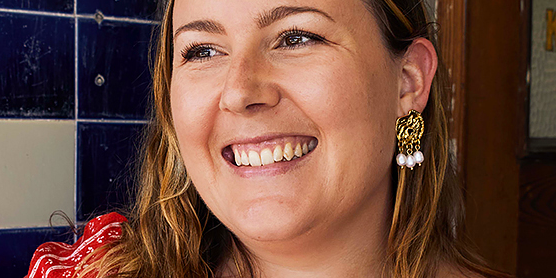Understanding PMDD: A Natural Approach to a Misunderstood Cycle

In this guest blog post, Stephanie from Eclipse Naturopathy shares what women need to know about Premenstrual Dysphoric Disorder.
There are times in the menstrual cycle when something shifts - not just physically, but emotionally and mentally. For some women, that shift is subtle. For others, it can feel like being pulled under by a wave of overwhelm, irritability, sadness or anxiety. You may feel like a completely different person.
If this sounds familiar - and it tends to happen in the week or two before your period - you might be experiencing PMDD, or Premenstrual Dysphoric Disorder.
PMDD is more than PMS. And it’s not “just in your head.” It’s a hormone-related condition that can impact how you think, feel and function. But with the right support, you can begin to understand what your body is asking for—and find more balance.
What is PMDD?
PMDD is a hormone-sensitive mood disorder that occurs during the luteal phase of your menstrual cycle (after ovulation and before your period). While PMS can cause discomfort or mood changes, PMDD is more intense, more disruptive and often harder to manage.
Common symptoms may include:
-
Mood swings or emotional sensitivity
-
Irritability or anger that feels hard to control
-
Anxiety or panic
-
Suicidal thoughts
-
Sadness or hopelessness
-
Fatigue and low energy
-
Sleep issues
-
Brain fog or trouble concentrating
-
Physical symptoms like bloating, headaches, or breast tenderness
What sets PMDD apart is the cyclical nature - symptoms tend to ease off once your period begins.
What’s Happening in the Body?
PMDD isn’t caused by “too much” or “too little” hormone. It’s about how your brain and body respond to the natural hormonal shifts after ovulation - especially progesterone and oestrogen.
Contributing factors may include:
-
Hormonal sensitivity: The brain’s reaction to progesterone can affect mood-regulating chemicals like GABA and serotonin.
-
Low serotonin: If levels are already low, the hormonal dip can hit harder.
-
Nervous system stress: Chronic stress makes it harder to stay grounded through hormonal changes.
-
Gut and liver health: These systems help process hormones and reduce inflammation.
-
Nutrient deficiencies: Low magnesium, B6 or zinc can impact mood and hormone function.
When the body is already under stress, even normal hormonal changes can feel like too much.
Supporting PMDD Holistically
PMDD invites us to slow down and listen to what the body’s really asking for. While there’s no one-size-fits-all fix, many women find relief through consistent support across nutrition, lifestyle and emotional wellbeing.
Nutritional Support
-
Magnesium – Helps calm the nervous system, reduce cramps and ease mood changes
-
Vitamin B6 – Supports serotonin and progesterone balance
-
Omega-3s – Reduce inflammation and support brain health
-
Zinc – Supports hormone metabolism and immune function
Herbal Support
There are many beautiful herbs that may help with PMDD, but herbal medicine should be personalised. We recommend working with a qualified practitioner to find the right blend for your unique body, lifestyle and any other conditions or medications.
Lifestyle Practices
-
Honour the need for more rest and gentle movement (like walking or restorative yoga) in your luteal phase
-
Regulate your nervous system with breathwork, meditation or time outdoors
-
Track your cycle to understand your rhythms
-
Create space to express emotions—through journaling, art, therapy or safe conversations
When to Seek Support
If PMDD is affecting your work, relationships, or sense of self, you don’t need to go through it alone. PMDD is often misdiagnosed as anxiety or depression, and many women spend years without the right support.
It’s time to get help if:
-
You feel like you lose yourself for part of each month
-
The emotional intensity is too much to manage
-
There’s a clear link between your cycle and your symptoms
-
You’ve made lifestyle changes but still feel stuck
A qualified Naturopath or holistic health practitioner can guide you through further testing, natural therapies, and supportive strategies to manage PMDD in a way that works for your body.
You’re Not Alone
PMDD can feel isolating, especially when others don’t understand just how deeply it can affect you. But your body isn’t broken—and it’s not working against you. These symptoms are signals. And when you begin to listen with care instead of judgment, everything can change.
If you’re ready to explore a more intuitive and supported way to manage PMDD, I’m here. You’re not meant to do this alone.
0 comments




